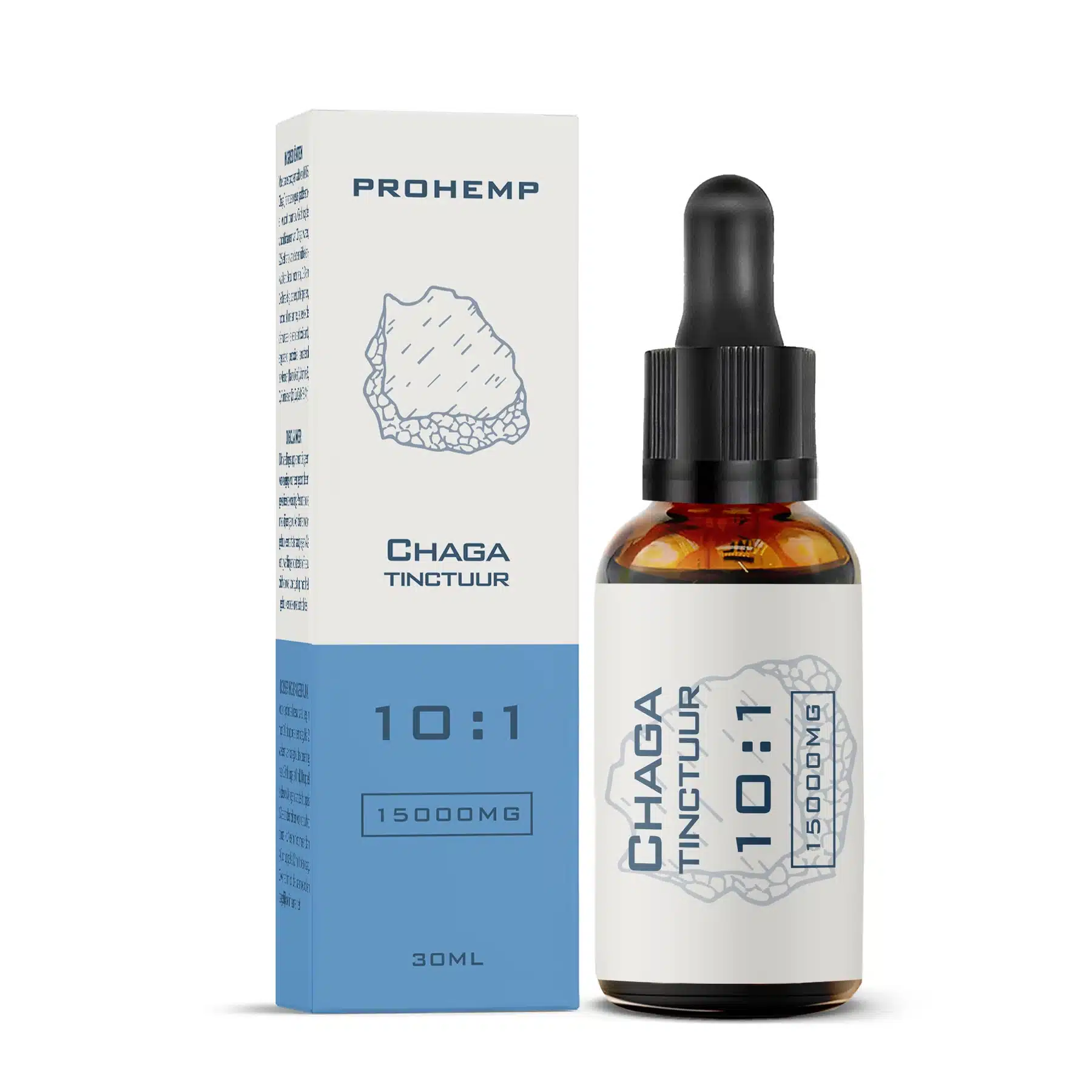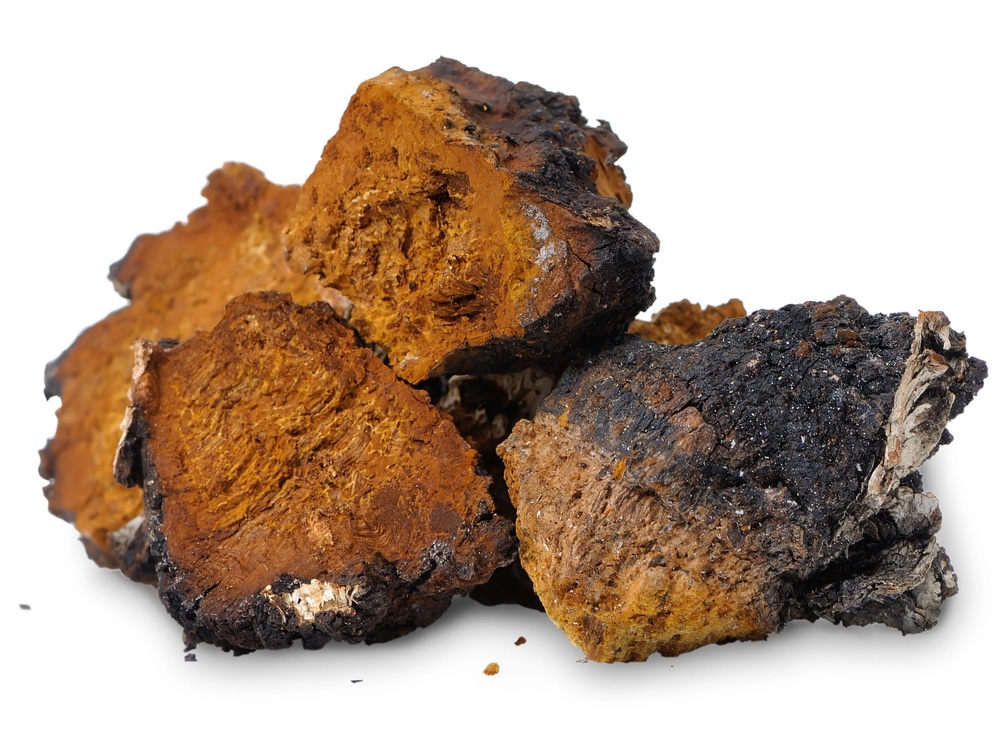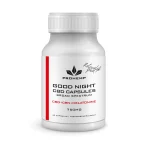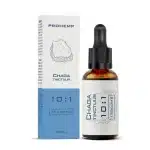Chaga, due to its abundance of active ingredients, potentially offers a range of beneficial health-promoting properties. Its effects may support the treatment of various diseases of civilization, although it is worth noting that these effects require further research and are not guaranteed. Here are some of them:
- Support for the immune system
Chaga contains polysaccharides that play a key role in modulating the body's immune response. In laboratory studies, these substances have been shown to stimulate the production of immune cells, such as macrophages and lymphocytes, which are essential for effectively fighting pathogens.
- Anti-inflammatory effects
Compounds in chaga, such as polyphenols and flavonoids, act as powerful antioxidants, neutralizing free radicals in the body and reducing inflammation. Thanks to their properties, these natural substances not only support the immune system, but can also help protect cells from damage, which is important in the prevention of chronic diseases.
Thanks to its high concentration of polyphenols and other bioactive compounds, chaga can contribute to the elimination of free radicals, which are responsible for degenerative processes in the body. Thus, it can support the body in the fight against aging processes and chronic diseases such as cancer and cardiovascular diseases.
- Potential anticancer effects
Preliminary laboratory studies suggest that chaga may have promising anticancer properties, especially in the context of its use as an adjunct to traditional therapies for colon, breast and liver cancers. The bioactive compounds contained in the mushroom affect a number of cellular mechanisms that can lead to the induction of apoptosis, or programmed death, of cancer cells, which can contribute to the inhibition of disease progression. In addition, these substances show potential in inhibiting the growth and division of cancer cells, raising hopes for the use of chaga as an aid in cancer therapy and the development of new treatment strategies.
- Regulation of blood sugar levels
Chaga contains many bioactive compounds, such as polysaccharides, triterpenoids and flavonoids, which may contribute to improving insulin sensitivity and regulating carbohydrate metabolism. In addition, its antioxidant properties may support the health of pancreatic beta cells, which are responsible for insulin production. Studies suggest that regular consumption of chaga may help stabilize glucose levels in the long term, resulting in overall improved metabolic health.
- Support for the cardiovascular system
Thanks to its anti-inflammatory and antioxidant properties, chaga may help improve cardiovascular health. Studies suggest that regular consumption of this mushroom can lead to lower blood cholesterol levels. In addition, chaga may have an effect on reducing blood pressure, which also supports proper cardiovascular function.
- Effects on the digestive system
Thanks to its anti-inflammatory properties, chaga can help reduce inflammation in the intestines, which is particularly important for people suffering from diseases such as ulcerative colitis and Crohn's disease. In addition, the bioactive components in chaga can stimulate the regenerative processes of the intestinal mucosa, which supports its natural ability to heal and rebuild. Regular consumption of chaga can also improve overall intestinal microflora, which benefits digestion and nutrient absorption.
- Stress support and mood enhancement
Chaga contains unique bioactive substances that can help the body regulate the stress response by balancing levels of stress hormones such as cortisol. The adaptogenic action not only supports the immune system, but also improves neurological function, resulting in better concentration, improved mood and reduced symptoms of anxiety.
Despite its promising health properties, it is worth remembering that research on Chaga is still ongoing, and much of it is preliminary. It's always a good idea to consult your doctor before starting supplementation, especially if you have an existing medical condition or are taking other medications.
Chaga contains many bioactive chemical compounds with potential effects on the human body. The key components are polysaccharides, especially beta-glucans, which exhibit immunomodulatory effects. They can mobilize the immune system, contributing to a better fight against infections and cancer. Also present in chaga are triterpenoids, known for their anti-inflammatory effects and potential ability to inhibit the growth of cancer cells. These compounds can induce apoptosis, or programmed cell death, and block important signaling pathways, such as the NF-kB pathway.
Another important ingredient is squalene, which has anticancer and antioxidant properties while supporting the immune system. Polyphenols, including tannins and other phenolic compounds, have strong antioxidant effects, which can help defend the body against oxidative stress, which has been linked to numerous diseases, including heart disease and cancer.
The potential anticancer effects are mainly due to the presence of triterpenoids, which inhibit the NF-kB pathway that is often activated in cancer cells. Blocking this pathway reduces the proliferation of these cells, making them more susceptible to treatment.
In terms of antioxidant activity, chaga, thanks to its polyphenols and squalene, can effectively neutralize free radicals, which reduces oxidative stress and protects cells from damage. Long-term antioxidant activity can help improve heart health and reduce the risk of developing chronic diseases.
In addition, the bioactive components found in chaga exhibit anti-inflammatory effects, which involve inhibiting the production of pro-inflammatory cytokines and the activity of enzymes such as cyclooxygenase and lipoxygenase. This action may benefit inflammatory diseases such as rheumatoid arthritis, underscoring the comprehensive effects of chaga on health and well-being.
For optimal results, it is best to start with smaller doses so that the body can gradually get used to it.
It is recommended to start with 10 drops per day, gradually increasing the dosage. After 2 weeks, the dosage can be increased to 20 drops per day, equivalent to 1 ml.
The drops should be placed under the tongue and left for 60 seconds before swallowing. This method ensures better absorption of the active ingredients through the oral mucosa, so you can optimally benefit from the action of the tincture. If this form of administration is not suitable for you, you can add the tincture to water, another drink or food.
The maximum intake of 40 drops (2 ml) per day should be observed. It is important not to exceed the recommended daily dose to avoid unwanted side effects.
Shake before use. The product should not be used if you are allergic to mushrooms. It is suitable for vegetarians and vegans. The product is not intended for children, pregnant and breastfeeding women. Dietary supplements are not a substitute for a varied and balanced diet. If in doubt, consult a specialist to determine the optimal dosage.
Although Chaga is known as a healthy and safe dietary supplement, its use may come with some contraindications that are worth keeping in mind. People who suffer from allergies to mushrooms, as well as those with autoimmune diseases, should approach supplementation with great caution. It is always recommended to consult a doctor before taking Chaga to make sure it is the right choice.
In rare cases, some people may experience allergic reactions after taking Chaga extract, which can manifest as a skin rash. In addition, there is a risk of gastrointestinal problems such as nausea, vomiting, heartburn or diarrhea, which can occur especially at the beginning of supplementation.
Chaga can affect blood clotting, so people with these problems, especially those taking anticoagulants, should avoid its use. People with circulatory disorders should consult a doctor before starting supplementation.
Some studies suggest that Chaga extracts may have hypotensive effects, meaning that they can help lower blood pressure. This can be problematic for people with low blood pressure or those taking high blood pressure medications.
It is recommended to start with smaller doses when introducing Chaga into the diet to observe the body's reaction. If you experience any worrisome symptoms, such as pain, dizziness or other discomforts, you should stop taking it immediately and consult an appropriate specialist for professional medical advice. By taking care of your health thoughtfully, you can reap the benefits of supplementation while minimizing the risk of potential health problems.





Reviews
There are no reviews yet.